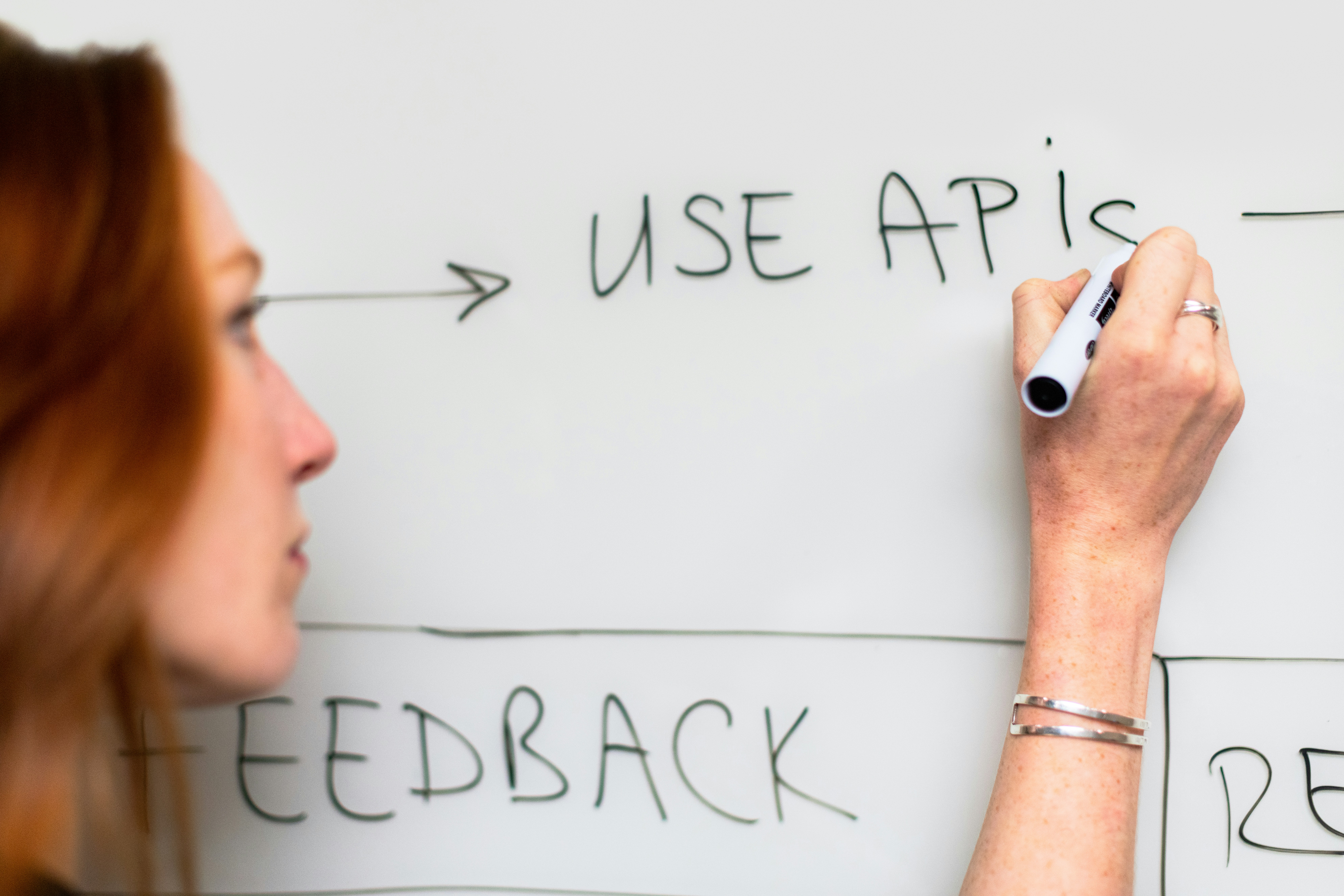Introduction to AI-Powered APIs
In the rapidly evolving technological landscape, Artificial Intelligence (AI) has become an indispensable element in the development of software applications. AI-powered APIs serve as conduits between applications and AI functionalities, enabling developers to incorporate intelligence into their systems efficiently. These application programming interfaces (APIs) allow software to tap into various AI capabilities, such as machine learning, natural language processing, and data analytics, thus enhancing the overall development process.
The integration of AI technologies into applications is crucial for modern businesses and project managers aiming to remain competitive. By leveraging high CPM (Cost Per Mille) strategies through effective affiliate marketing channels, companies can optimize user engagement and income. API technologies streamline processes, improving decision-making by providing real-time data analysis and insights. For instance, sophisticated algorithms can analyze user behavior and predict trends, allowing businesses to tailor their strategies accordingly.
Furthermore, AI-powered APIs foster innovation across various industries by automating routine tasks and freeing up human resources for more complex problem-solving activities. These advancements not only increase efficiency but also enhance the quality of output. In sectors such as finance, healthcare, and e-commerce, AI-driven solutions have the potential to revolutionize practices and deliver high-value results.
Looking forward to the year 2025, the relevance of AI-powered APIs becomes increasingly significant as businesses continue to adopt tech SaaS models for scalability and flexibility. Organizations must stay abreast of these developments to stay relevant, making an understanding of these APIs essential for successful project management. This introduction sets the groundwork for exploring specific AI-powered APIs that promise to elevate projects by harnessing the power of artificial intelligence.
Criteria for Selecting Essential AI APIs
In the rapidly evolving field of technology and software development, selecting the right AI-powered APIs is critical for driving project success. As developers embark on their quest for the optimal tools, several key factors must guide their decision-making process. The first aspect to consider is the functionality of the API itself. It’s essential to evaluate whether the API provides the specific AI capabilities needed for your project. Features such as natural language processing, image recognition, or predictive analytics can dramatically influence your project’s outcomes.
Next, ease of integration is paramount. A well-documented API that allows for smooth integration into existing systems will save developers time and resources. Quality documentation should include examples, guidance for common use cases, and clear error handling descriptions. Additionally, this should be complemented by the availability of support, as responsive technical assistance can significantly enhance the user experience, especially when challenges arise during implementation.
Scalability is another critical consideration. As your project grows, the API should be able to accommodate increased demands without compromising performance. Developers should assess the API’s capacity to handle large volumes of transactions and its provisions for scaling resources efficiently. Furthermore, it is important to consider the cost-effectiveness of the API. An analysis of pricing structures and potential return on investment will help ensure that budget constraints do not hinder project advancement.
Finally, contemplating the overall value each API brings to your project is crucial. By balancing functionality, integration ease, scalability, support, and cost, developers can make informed decisions that align with their project goals. This strategic approach not only enhances the likelihood of success but also positions projects within the competitive landscape of high CPM affiliate marketing and tech SaaS blog endeavors.
The Top 10 AI-Powered APIs for 2025
As technology continues to advance rapidly, the relevance of AI-powered APIs becomes increasingly apparent. In 2025, developers will have access to numerous APIs that can significantly enhance their projects. Below is a curated list of the top ten AI-powered APIs projected to be indispensable for various applications.
1. OpenAI GPT-4 API: This natural language processing API offers sophisticated text generation capabilities, enabling developers to create applications for chatbots, content creation, and sentiment analysis. Its ability to understand context makes it ideal for customer support systems.
2. Google Vision API: Leveraging cutting-edge computer vision technology, this API allows developers to integrate image recognition features into their applications. Use cases include object detection, facial recognition, and image moderation, catering to industries such as e-commerce and security.
3. IBM Watson Speech to Text API: This API provides accurate voice recognition and transcription services, allowing developers to build applications that can convert spoken language into text effectively. It has myriad applications in healthcare, legal, and education fields.
4. Microsoft Azure Cognitive Services: A collection of APIs covering various AI functionalities, including speech, vision, and decision-making. Its wide-ranging capabilities make it suitable for developers seeking to integrate multiple AI features within a singular platform.
5. Clarifai: Best known for its image and video recognition capabilities, Clarifai allows developers to build automated tagging systems, content moderation solutions, and even augmented reality experiences in mobile applications.
6. Hugging Face Transformers API: This library focuses on natural language understanding and generation, ideal for creating conversational agents and summarization tools, making it valuable in sectors ranging from finance to journalism.
7. Amazon Rekognition: This API offers state-of-the-art image and video analysis, suitable for use cases such as security surveillance, photo organization, and content moderation, allowing businesses to harness the power of machine learning.
8. Algorithmia: A platform that connects developers with a diverse range of algorithm APIs, enabling seamless integration of AI functionalities into applications tailored to specific user needs, enhancing affiliate marketing efforts.
9. DataRobot: A machine learning API that automates model training and deployment, making it accessible for developers without extensive AI backgrounds. This API streamlines the process of integrating predictive analytics into various applications.
10. Wit.ai: A user-friendly natural language processing API that assists developers in building applications that understand and respond to user queries effectively, with applications in voice interfaces and customer interaction tools.
These innovative APIs are set to transform project development in 2025, addressing a wide range of needs from machine learning to natural language processing. By leveraging these AI-powered tools, developers can significantly enhance functionality and user experience in their applications.
Maximizing the Benefits of AI-Powered APIs in Your Projects
Integrating AI-powered APIs into your projects can significantly enhance their performance and capabilities. To achieve optimal results, it is essential to adopt best practices for integration and utilization. One effective strategy is to combine multiple APIs, creating comprehensive solutions that leverage the strengths of individual services. For instance, utilizing APIs for data analysis alongside those for natural language processing can offer a more holistic approach to problem-solving in a tech SaaS blog, enabling innovative functionalities that cater to various user needs.
Testing and optimizing API performance is another crucial aspect of maximizing benefits. Regular assessments help identify inefficiencies and bottlenecks, ensuring that your integration runs smoothly. Monitoring metrics such as response time, error rates, and data throughput can unveil areas that may require enhancement. By employing techniques like load testing and real-time monitoring, you can ensure that your applications remain responsive and reliable under varying conditions, which is particularly important in high CPM contexts where performance impacts revenue directly.
As technology rapidly evolves, maintaining and updating API integrations is vital to ensure long-term success. Be proactive in monitoring the updates provided by API providers, as they often introduce new features and improvements that can enhance your application’s functionality. Implementing a version control system will enable you to manage updates smoothly, reducing disruption to your project. Furthermore, fostering a culture of continuous learning among your development team helps stay abreast of emerging trends in AI and affiliate marketing strategies, ensuring that your projects are competitive and relevant in an ever-changing landscape.
In conclusion, the strategic integration and ongoing management of AI-powered APIs can unlock significant potential for your projects. Staying informed and adaptable is crucial for harnessing the full power of these technologies to drive innovation and success in your endeavors.



